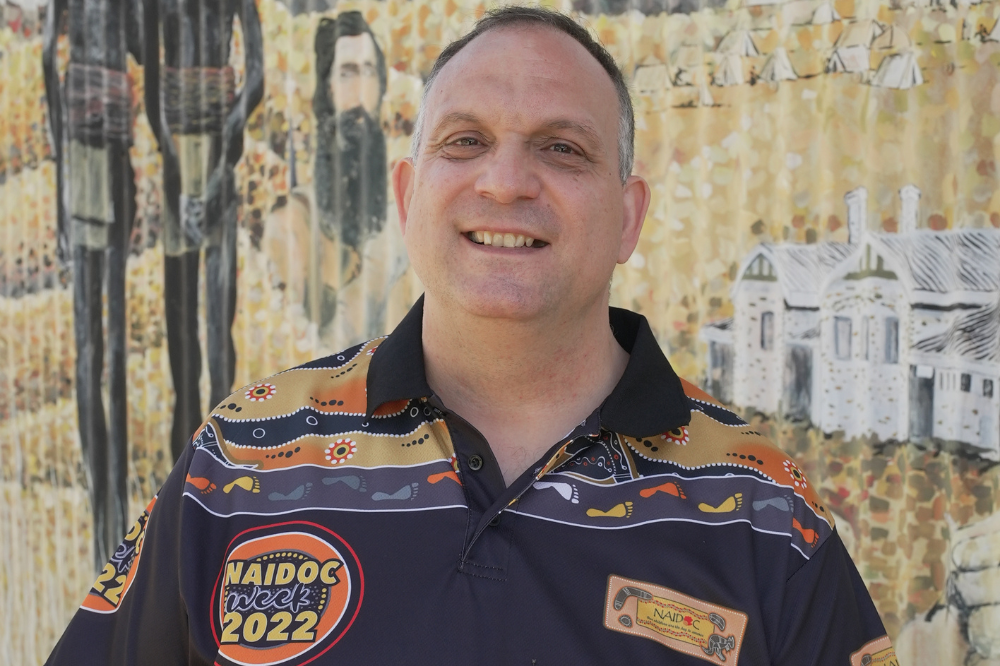
by George Pantazis
Growing up, I was taught that teachers played an important role in the community. They were well-respected, and it was considered a noble profession. I believe that sentiment remains today. But in 2023, with recent years of disruption and uncertainty behind us, there are concerns that students have become disengaged.
We are at a critical period when it comes to re-engaging our students. But how can we ensure this is realised in the classroom? I believe the answer is twofold.
I am fortunate to spend my working days with some of the brightest and curious young minds. What I find essential for engaging the next generation, is adopting a two-way learning approach. Being a teacher is not only about teaching students, but also learning from your students.
This is why I believe science, technology, engineering, and mathematics (STEM) are extremely important to the curriculum – it has always integrated a collaborative approach to achieve progress and success. STEM forces us to inquire, pursue knowledge in new areas and make meaningful discoveries that ultimately influence our way of life.
As human beings, and especially as teachers, we love those ‘light bulb’ moments when you overcome a barrier to understanding. Learning in the classroom should be no different. As teachers, we all have an obligation to position two-way learning at the forefront.
I also believe this collaborative approach can be successfully bolstered by the introduction of virtualisation within the learning environment. My amazing journey as a teacher began at Marble Bar Primary School in Western Australia, where my approach to STEM education has been very different from traditional methods.
I was able to incorporate First Nations culture with 21st century technologies after I was introduced to the power of virtualisation and immediately saw the potential of this emerging technology for student engagement. I was inspired to help my students share their First Nations knowledge, culture and language with me, and the world.
From recording local flora and fauna to understanding natural landscape topography, virtual reality (VR) quickly became the catalyst for creating the first ever three-dimensional digital First Nations seasonal calendar. Students created two-dimensional canvas drawings of the various seasons in First Nations culture before transferring their drawings onto a VR application that allows you to digitally ‘paint’ a canvas.
With the success of the first project, the students have continued their amazing work to create a VR gallery of their artworks. The Walkthrough Gallery was showcased to the world at the Resources Technology Showcase in 2021, with approximately 663 students and adults participating in the VR gallery. This project catapulted Marble Bar Primary School into the spotlight as a leader in culturally responsive STEM.
Integrating emerging technologies within education settings is also an opportunity to address some of the most critical issues facing First Nations Australians. At Marble Bar Primary School, we have been focused on creating a Language Preservation Centre to preserve the critically endangered Nyamal language – which has less than 10 speakers worldwide. Students have risen to the challenge, using emerging technologies to record Dreamtime stories. This project is ongoing, with music and songs incorporated into the virtual world.
In 2023, I will be continuing my approach and re-locating to Tjuntjuntjara in Western Australia, working with staff and students to create the first culturally appropriate educational video game.
We should all remember to acknowledge the outstanding contributions of teachers, educators, and innovators, particularly those in STEM fields, who are discovering new and exciting ways to engage the next generation.
It was an honour to receive the Prime Minister’s Prize for Excellence in Science Teaching in Primary Schools in November 2022. The Prime Minister’s Prizes for Science is an opportunity to recognise STEM educators who are leaders in their respective fields. Unlocking students’ interests, igniting their curiosity and recognising their potential will propel our nation further forward, and we should continue to recognise these contributions.
We should all remember to acknowledge the outstanding contributions of teachers, scientists, and innovators, particularly those in STEM fields, who are discovering new and exciting ways to engage the next generation. You can do this by nominating them in the Prime Minister's Prizes for Science, which are open until 5:00pm (AEDT) Thursday 9 February.
Mr George Pantazis was recipient of the 2022 Prime Minister’s Prize for Excellence in Science Teaching in Primary Schools.


